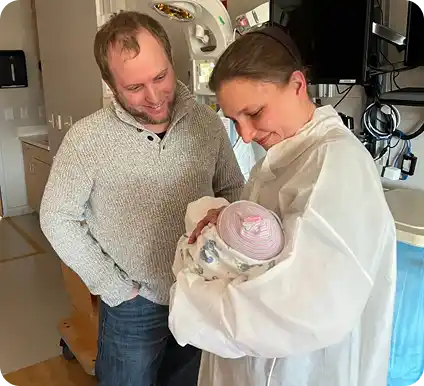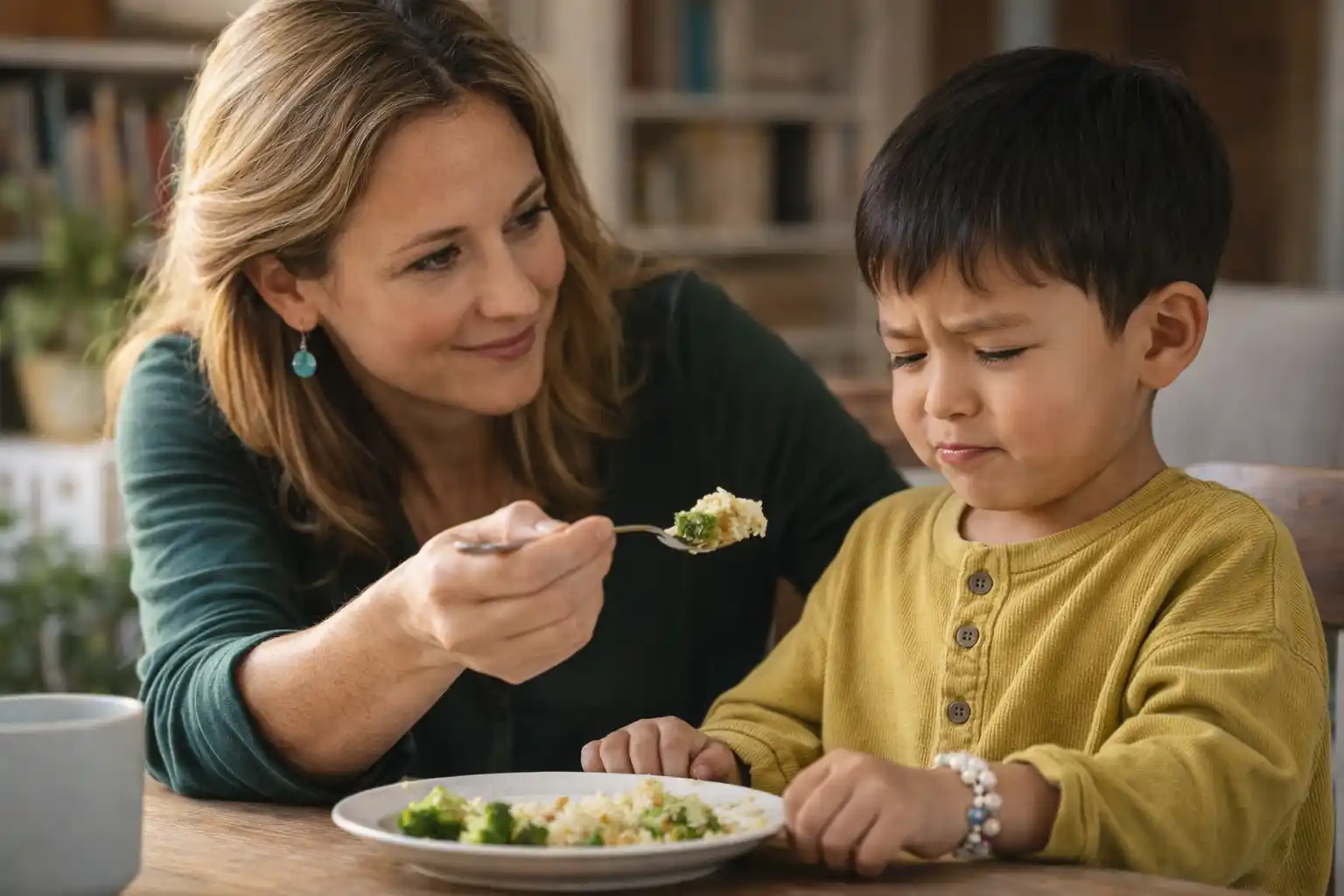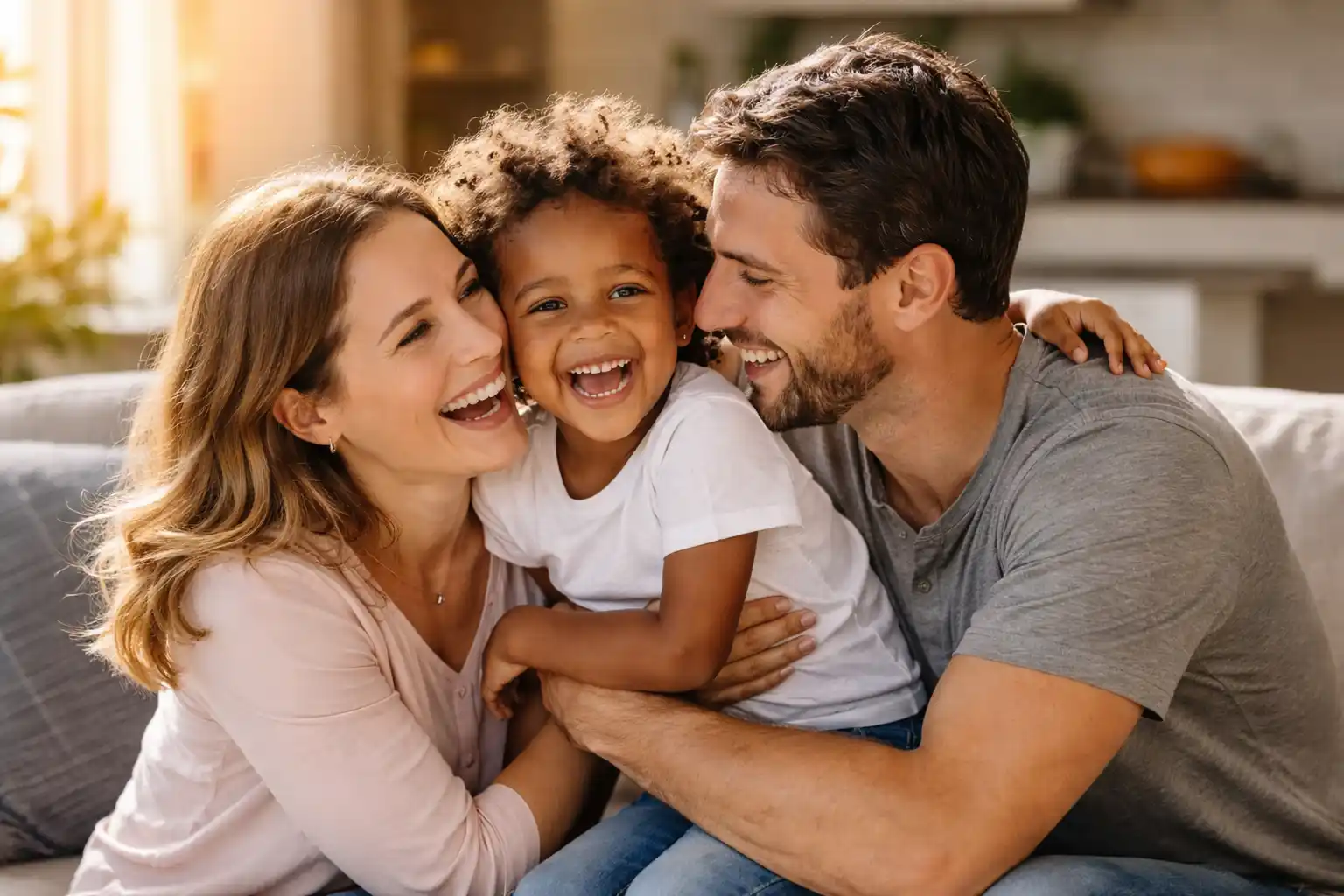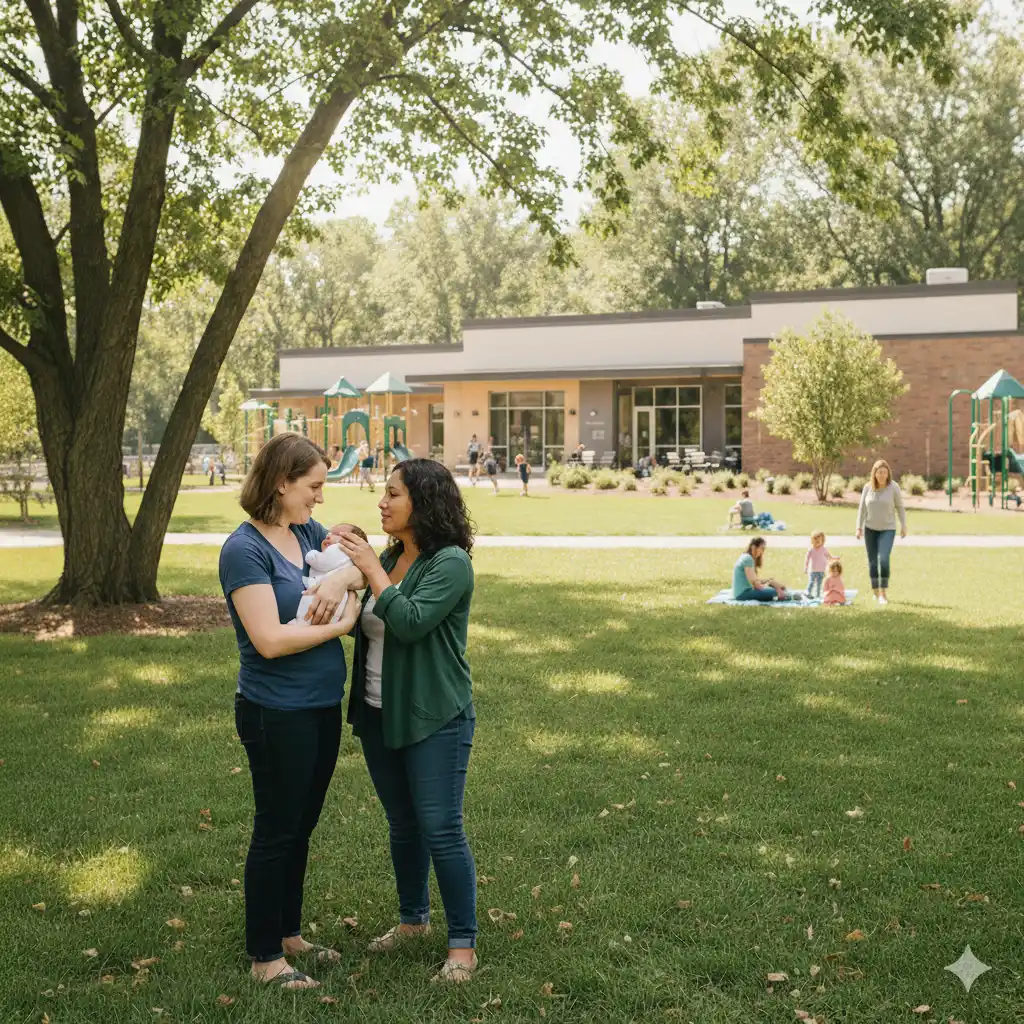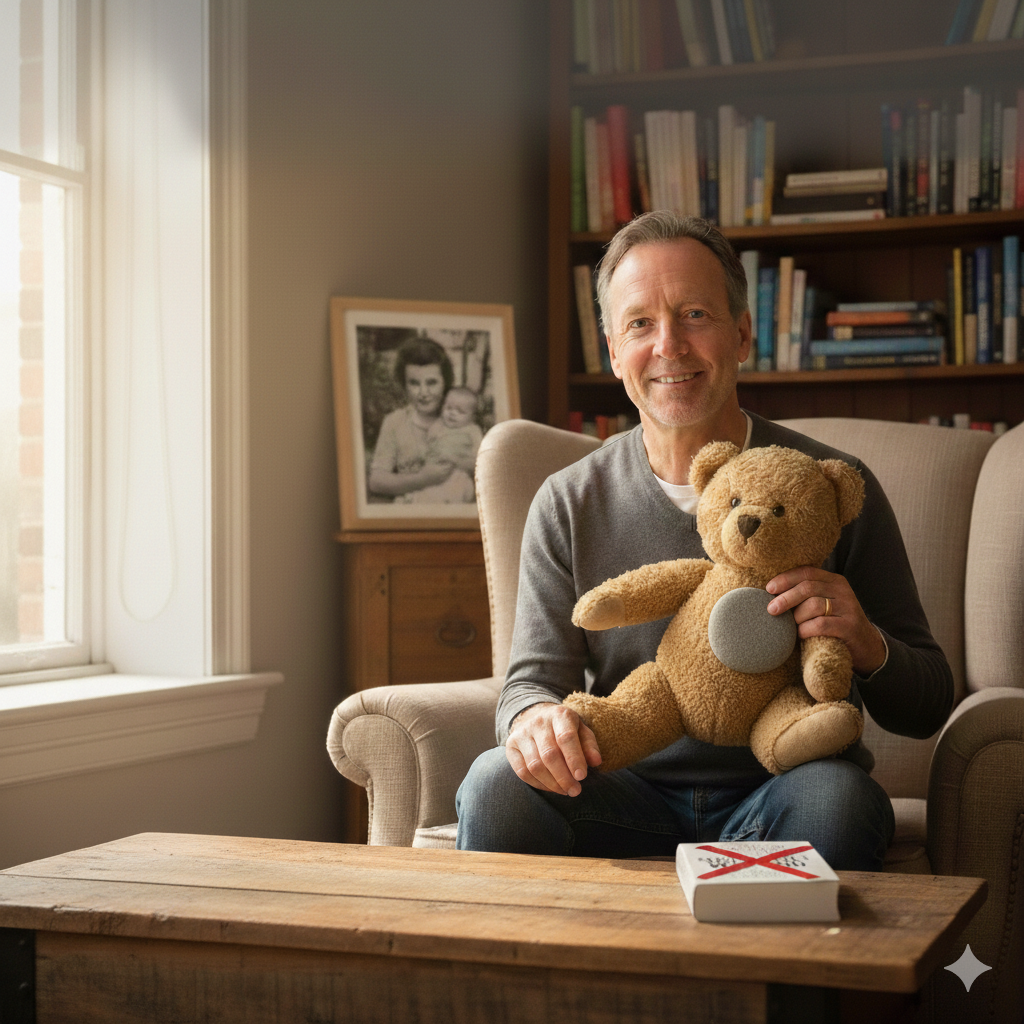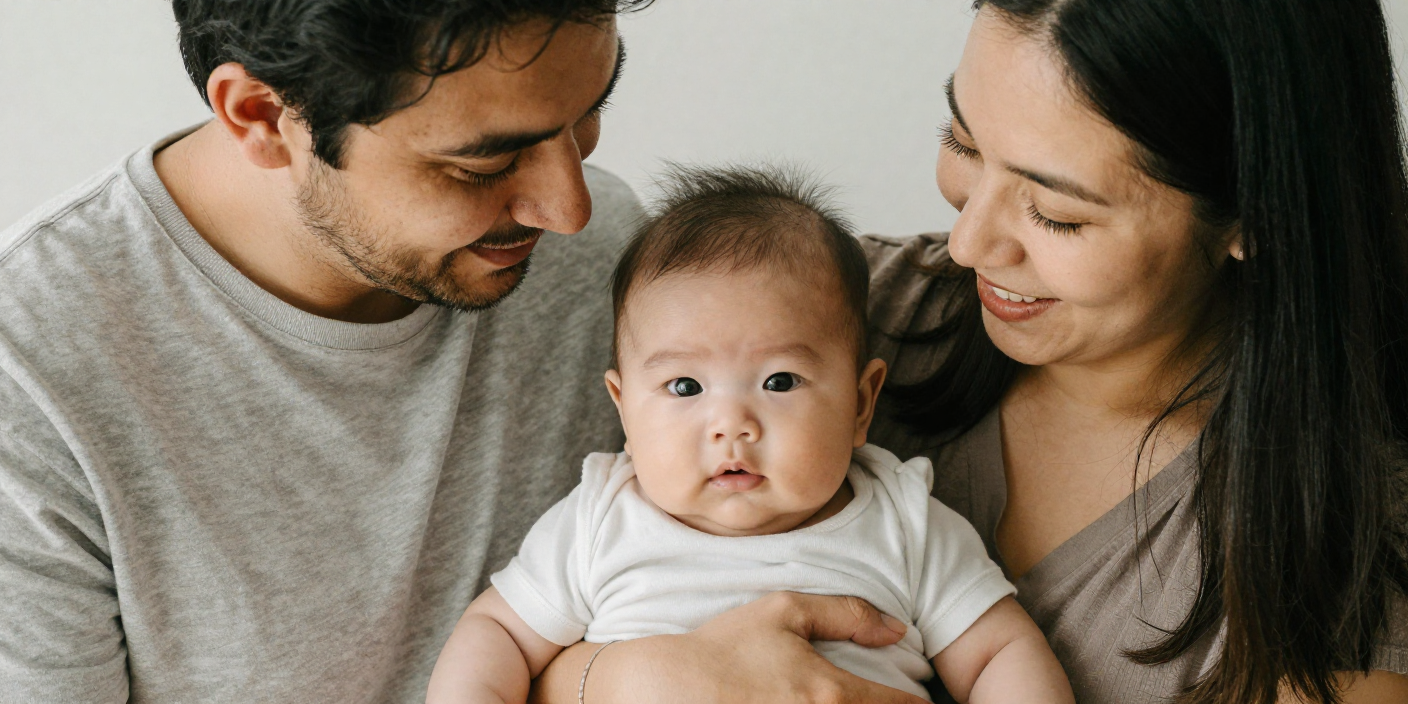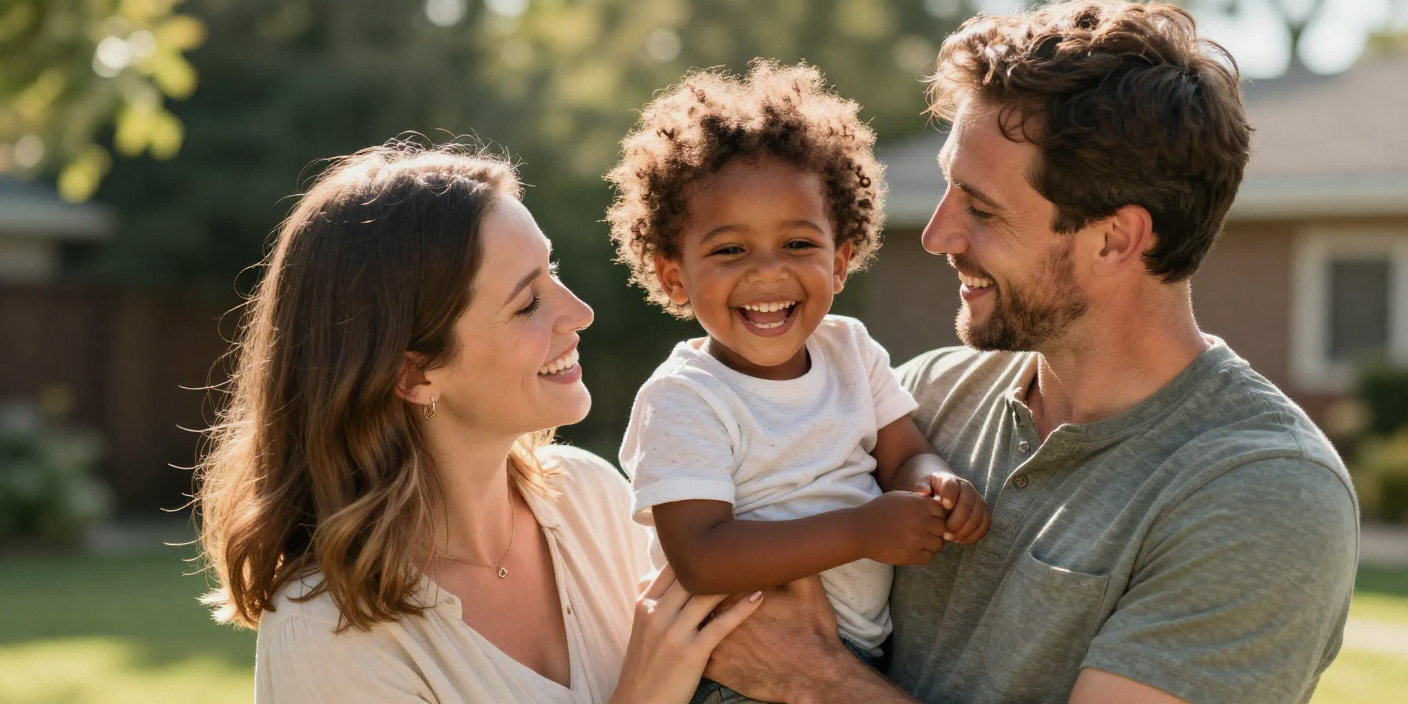Coming Out of the Fog: One Adoptee’s Emotional Journey Toward Identity, Love, and Healing

Amy Geller was born in 1970, the peak year for domestic infant adoptions in American history. The "Baby Scoop Era" spanning 1947-1973 saw unprecedented numbers of unmarried women place infants for adoption, driven by social pressures and limited alternatives before Roe v. Wade. Amy's birth mother chose adoption through a private domestic arrangement that connected her with a family of four biological sons whose parents wanted a daughter.
In this episode of Voices of Adoption, hosts Donna Pope and Nathan Gwilliam interview Amy Geller, now a therapist and doctoral researcher specializing in adult adoptee experiences. Amy brings perspective as both adoptee and clinician, having navigated her own reunion journey while researching how adoptees experience therapy and what interventions help most. Her story demonstrates how adoption complexity unfolds across decades, with awareness often arriving in middle age when adoptees recognize how thoroughly adoption has shaped their lives.
Secret Teenage Search Begins
At 14, Amy discovered a folder labeled "Amy Adoption" in her father's filing cabinet while searching for letterhead. Inside were papers listing her birth name as "Baby Girl" followed only by her birth mother's surname. Seeing herself nameless sparked questions about identity and belonging that many adoptees experience. She wrote down her birth mother's name and carried it for weeks, recognizing the significance of what she was considering.
When Amy finally called her birth mother with her best friend's support, her birth mother established a clear boundary that demonstrated respect for the adoptive family relationship. Amy told her parents immediately about the phone call. Their faces revealed concerns before they gathered themselves and offered supportive words, but Amy saw the vulnerability underneath.
At that point, Amy made a protective choice. She told her parents she was done with her birth mother and wanted nothing more to do with her. Research done on the Adoption Communication Pathway(ACP) model indicates that moderate to strong interest in birth parent information is common among adoptees, with curiosity emerging at different developmental stages. Amy put the reunion on hold for more than a decade, carrying questions that would resurface later in life.
Coming Out of the Fog
For decades, Amy lived without connecting her struggles to adoption. Relationship difficulties and challenges with intimacy seemed like personal issues. Then, in her 40s, while pursuing her doctorate and researching adoption, everything shifted. She describes the experience like getting glasses for the first time when you didn't know your vision was impaired. Suddenly, the world comes into focus with clarity that reveals patterns previously hidden.
Before this awakening, Amy struggled with relationships and went through divorce at a young age. She attended therapy asking why she couldn't find satisfying partnerships, always focusing on what seemed wrong with others rather than examining her own patterns. Recognition meant understanding that adoption had created questions about attachment, belonging, and intimacy that affected every relationship. One particularly meaningful realization emerged about her "perfect angel baby" behavior as an infant.
Amy's mother had always celebrated how quiet and peaceful Amy was as a baby, never crying or fussing. Then Amy learned about research on infant separation responses documented by Nancy Verrier showing that silent, withdrawn infants can display grief responses after separation from birth mothers. The "perfect baby" story transformed into recognition that infant responses to separation deserve compassionate understanding, helping adoptive parents respond with extra support when children later work through attachment challenges.
What Therapists Need to Know
Amy's doctoral research focused on adult adoptee experiences in therapy. She expected participants to report negative experiences with therapists who lacked adoption knowledge. Instead, results revealed that many adoptees had positive therapeutic experiences with clinicians who simply remained open to learning about adoption alongside their clients. One participant described a therapist who suggested they read "The Primal Wound" together, one chapter per week, then discuss it in session.
The therapeutic relationship matters more than specialized adoption training. An adoptee who has worked with a therapist for years and built deep trust shouldn't necessarily abandon that relationship when adoption issues surface. However, therapists must avoid certain responses. Phrases like "that was a long time ago" minimize legitimate grief regardless of how many years have passed. Comments like "you wouldn't have the life you have now" create forced gratitude that doesn't allow space for mourning loss.
Amy's primary recommendation centers on strengthening skills around grief and loss because adoption begins with loss for everyone involved. The child experiences separation from their birth mother. The birth mother places her child. Adoptive parents often arrive at adoption after infertility experiences. Research published on Frontier's on adoptees' psychological wellbeing across life transitions indicates that adoptees continue important psychological work related to adoption during emerging adulthood and major life milestones including marriage, having children, and losing adoptive parents, triggering questions about genetic heritage and identity that may have remained quiet for decades.
Guidance for Connected Families
Based on her experience and professional work, Amy offers clear recommendations for adoptive parents who want to build strong, connected families:
1. Start early - Begin talking about adoption before children remember "the talk," making it a normal conversation rather than a dramatic revelation
2. Use progressive honesty - Add details as children mature emotionally rather than withholding information permanently
3. Acknowledge differences - Recognize that families formed through adoption function differently than biological families without implying "less than"
4. Prepare for curiosity - Expect that adopted children may seek biological connections regardless of positive adoptive experiences
5. Love with intention - Adoptees benefit from extra reassurance about their place in adoptive families
6. Work on your own experiences - Adoptive parents who process their own losses can better support their children's adoption-related feelings
Amy particularly emphasizes that adoptive parents should never withhold known information about their biological family. Transparency builds trust, while secrecy creates barriers that complicate relationships. She also recommends that adoptive parents engage in therapy focused on their own adoption-related experiences rather than only sending children to therapy. The most effective intervention often involves helping parents understand their concerns, process their losses, and develop skills to support their children through identity exploration.
Amy's overarching message emphasizes connection as the foundation for healing. Adoption can create vulnerability for everyone in the constellation. Adoptees wonder if love is conditional. Birth mothers carry questions about their decisions. Adoptive parents worry about being replaced. These shared experiences create opportunities for honest conversation when families can name them without judgment, building bridges through openness, curiosity, and willingness to sit with discomfort while growing together.
Ready to explore more perspectives on adoption therapy, recognizing how adoption shapes lives, and building connected adoptive families? Subscribe to Voices of Adoption podcast for conversations that honor complexity and support growth.
Follow or Subscribe to Voices of Adoption on your favorite platform:
Website: VoicesOfAdoption.org | YouTube: @VoicesofAdoptionShow | Twitter/X: voices_adoption | Instagram: voicesof_adoption | Facebook: Voices of Adoption | TikTok: @voices_of_adoption | LinkedIn: voices-of-adoption
Follow Nathan Gwilliam on LinkedIn: @nathangwilliam
Follow Donna Pope on LinkedIn: @donna-pope-41652ba
Follow Dr. Amy Geller:
Website: AmyGellerLCSW.com; Adult-Adoptees.com; AHomeWithin.org | LinkedIn: @Dr-Amy-Geller-DSW-LCSW | Instagram: @Amy.Geller | Facebook: AmyGellerLCSW | Email: amygellerlcsw@gmail.com

